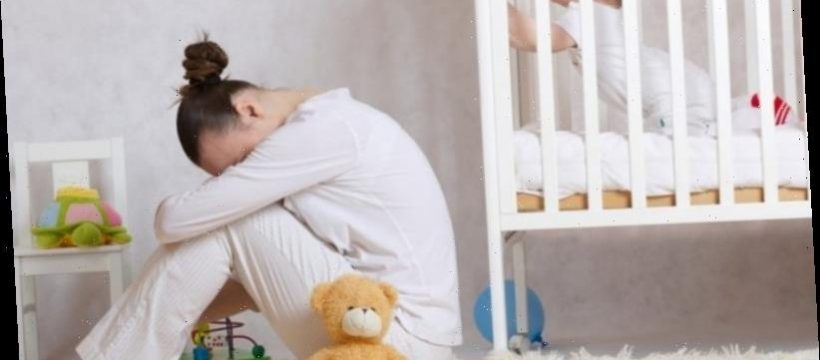I’d always pictured myself having one or three children. Not two. One or three were the – admittedly illogical – magic numbers. So when I agreed with my husband that we should have a second baby, in my head I was agreeing to a third as well.
What happened instead was a personal mental health crisis.
More support would help more women feel they can handle having more kids.Credit:Shutterstock
I was diagnosed with postnatal depression after my second baby, most likely a continuation of undiagnosed depression and anxiety after having my first. It became eight years – from baby one through to the preschool years of baby two – that I experienced these mental illnesses, ranging from manageable levels (when I could convince myself I was "fine") to the severity of suicidal thoughts.
That third baby? My husband, and others close to me, urged me to forget the idea. They were sure I wouldn’t survive having another child and, while I had to grieve the child who would never be, I agreed with them that my own health had to be the top priority.
This is why, when Tony Abbott made his public call for “middle class” women (and, presumably, men) to have more children, I couldn’t help but think, "It’s all well and good for him".
The truth is that a mental health challenge is an invisible reason for us to not pop out baby upon baby.
It’s very simple to say that we should just pop out another baby. The realities of what this means to a parent’s health is something else altogether.
According to PANDA, perinatal depression and anxiety hits around one in five mums and one in t10 dads.
Since releasing a book about my own experiences, I’ve met lots of those parents.
Some of them have asked me why it is that us “middle class” parents seem to fall so hard. They wonder if it’s because we were told we could have it all (yet here we are, unable to even get three hours sleep in a row), or because it’s such a jarring change between the workplace to parenthood at home, or because we’re so hard on ourselves.
I daresay it’s a combination of all the above, as well as a whole lot of other things. Mental illnesses like depression and anxiety are often triggered by a combination of factors: genetics, a lack of support, past experiences, stressful events … and the list goes on.
In the context of Tony Abbott’s conversation starter, the truth is that a mental health challenge is an invisible reason for us to not pop out baby upon baby.
Because, while he’s right in suggesting that governments need to “make it easier for women in the workforce to have more kids” (though, I can’t help wanting to remind him again that men are parents too), it’s doubtful they’re considering mental health as one of those considerations.
Governments tend to think of such things in one-dimensional thought processes. Like this: Q: We need working women to have more babies; what to do? A: It must be a workplace and economic issue! And it is. But that’s just one part of a wider issue, which also involves parents’ health.
If they want us to have more babies, they need to make sure the support systems are in place. (Properly in place, not just a questionnaire asked at a baby’s health check and then brushed aside.) They need to make sure mental health services are accessible to all. They need to make sure that the partners of pregnant women can provide, and access, workplace flexibility and mental health support.
They need to remember that parents are humans whose health and wellbeing is paramount, not baby-making, economy-boosting machines.
Megan Blandford is the author of I’m Fine (and other lies).
Source: Read Full Article

